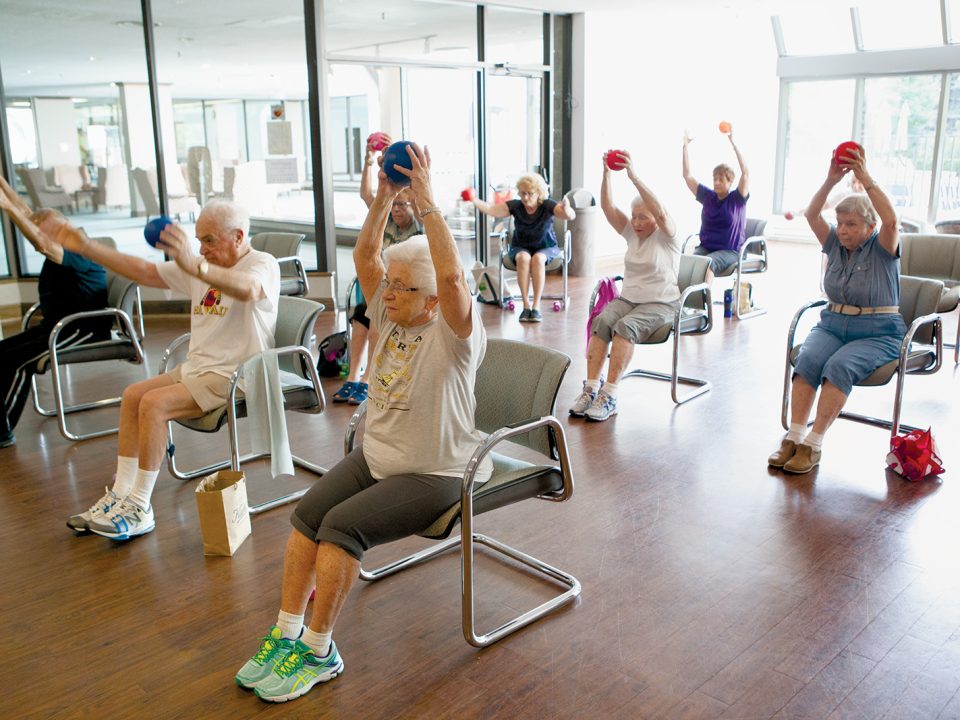
Activities for people with dementia based around food
April 26, 2019
What Should I Eat After Working Night Shift?
May 26, 2019Should There Always Be A Nurse On Duty And Present In Nursing Homes?

friendly young nurse talking to senior patient
Should There Always Be A Nurse On Duty And Present In Nursing Homes?
When an older person moves into aged care, they are usually doing so because they need around-the-clock care they can’t receive at home.
But the move can be traumatic. The person must leave their home and community, and adjust to new people and surroundings. They also have to accept they have lost a degree of their autonomy and independence.
The comfort to older people of making this life-altering move is that they will be expertly and knowledgeably cared for.
But what happens when the aged care facility doesn’t have the appropriate staff on duty; can this care be delivered to the standard we expect?
Inadequate staffing is a problem we hear about all too often in aged care. Our readers tell us about it. We read about it in the media. And it has been mentioned multiple times at the royal commission hearings.
One of the most pressing aspects of inadequate staffing is that not enough registered nurses are employed in aged care facilities – sometimes, there are no RNs on site at all.
We spoke to three experts about what the shortage of nurses in our aged care facilities means for the quality of care we are delivering for older Australians.
24% Of Aged Care Facilities Don’t Have A Nurse On Site 24/7
According to a recent survey by Dr Sarah Russell, principal researcher, Aged Care Matters, 24 per cent of aged care homes do not have a registered nurse on site 24/7.
Dr Russell said having a nurse available on site can prevent situations from escalating.
“When PCAs observe changes in a resident’s behaviour or health, they are trained to report these changes to a registered nurse.
“But with no registered nurse on site, elderly residents, particularly those who are uncommunicative, do not receive timely treatment when their condition changes,” she said.
“In some cases, this [absence] is a form of neglect,” she said.
“Not on-call, not at the end of a phone, or with responsibility for three or four facilities”
ANMF federal secretary, Annie Butler, ageed. She told HelloCare there should always be a registered nurse on duty in residential aged care.
“And that means on site. Not on-call, not at the end of a phone or with responsibility for three or four facilities, but on site 24 hours a day.”
“And, depending on the number of residents and their care needs, there should be more than just one RN on duty,” she said.
Almost 70 per cent of respondents to a 2016 ANMF survey said the ratio of registered nurses to other staff was inadequate.
The average resident receives only eight minutes of care a day from a registered nurse, according to a survey commissioned by the commonwealth government.
Operators “Making Do” With Staff And Skill Mixes
Paul Gilbert, Australian Nursing and Midwifery Federation (Vic), also told HelloCare that more than one nurse should be on duty at all times.
“The current situation is having to ‘make do’ with the staff numbers and skill mix the approved provider determines, with little if any guidance from legislation,” Mr Gilbert said.
“The exception to this is Victorian public sector nursing homes who have legislated minimum nurse to resident ratios,” he said.
“It is now increasingly common for there to be shifts with no registered nurse, as a deliberate cost saving strategy,” Mr Gilbert said.
Nurses Have Irreplaceable Role In Aged Care
Registered nurses are educated and qualified to perform a range of duties.
Registered nurses assess the residents on admission and subsequently develop nursing care plans for each resident. They are responsible for ensuring the nursing care plan matches the assessed needs of the resident. They are responsible for the management of medication administration, pain management, continence management and wound care. They delegate nursing care to other staff.
“RNs know when to act and crucially, when not to act, e.g. when not to give a medication,” Ms Butler said.
“They also know how and when to intervene to avoid complications and deterioration,” she said.
Our Elderly Deserve “So Much Better”
Ms Butler said not having enough registered nurses available results in “missed care, unreasonable workloads and expectations for care workers, avoidable transfers to hospital and unnecessary suffering for residents.
“Without adequate nursing and care staff, a resident’s care needs are not adequately recognised or acted upon, care is missed or inappropriate, or residents are unnecessarily transferred out into emergency departments,” Mr Gilbert said.
“So many problems in residential aged care could be avoided by guaranteeing safe staffing levels of both qualified nurses and well trained care-workers,” Ms Butler said.
“For the sake of our elderly, who deserve so much better, it has to happen.”
This article was originally published on www.hellocaremail.com.au by Caroline Egan. Mar 15, 2019










